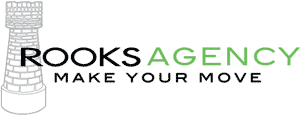In today’s competitive landscape, local SEO is vital for home service businesses like HVAC, plumbing, electrical services, and automotive repair. With consumers increasingly relying on search engines to find local services, businesses must maintain a strong local online presence. Here are key strategies to help you dominate local search and grow your business.
1. Claim and Optimize Your Google Business Profile (GBP)
Maintaining an updated Google Business Profile is essential for local SEO, as it’s often the first impression potential clients get of your business. Besides keeping basic information like your NAP (name, address, phone) accurate, a well-crafted business description is crucial.
Why a Good Business Description Matters?
Your business description is your opportunity to tell potential customers what makes your business unique. By incorporating your company’s Unique Selling Proposition (USP), you can differentiate yourself from competitors. This section should highlight what sets your services apart, such as specialized expertise, local knowledge, or unique offers. Including relevant keywords (without overstuffing) can also help improve your local search rankings.

Tips for a Strong Business Description:
- Focus on your USP: What can you offer that competitors can’t?
- Use natural, customer-friendly language: It should be easy to read and appealing to your audience.
- Highlight services offered: Mention the key services you provide and the areas you serve.
- Call to action: Encourage visitors to contact or visit your website for more information.
Example of a Business Description for an HVAC Company:
“Blue Valley Heating, Cooling, and Plumbing has been a trusted name in the Colorado and Longmont area for over 30 years. Our expert team provides comprehensive HVAC services, including heating and air conditioning installation, repair, and maintenance. We specialize in energy-efficient solutions, helping homeowners save on energy costs while staying comfortable year-round. As an award-winning, family-owned business, we’re committed to quality workmanship, exceptional customer service, and fast, reliable response times. Call us today for a free consultation or 24/7 emergency HVAC repair!”
This description incorporates the company’s expertise, their location, and their USP (energy-efficient solutions and award-winning service). It also uses actionable language and keywords like “HVAC services,” “heating and air conditioning repair,” and “Colorado,” which help improve search visibility.
By including your USP and strategically placing local and industry-related keywords, your business description can greatly enhance your Google Business Profile and attract more local customers. Let me know if you’d like further adjustments!
2. Leverage Localized Content
Incorporating location-specific keywords into your website’s content is a critical aspect of local SEO. However, simply adding keywords isn’t enough—you need to place them in key areas of your website to maximize their effectiveness. Here are some examples of where and how to effectively incorporate local elements into your content:
Critical Spots to Add Local Keywords
Title Tags and Meta Descriptions
These are among the most important areas for local SEO. Including location-based keywords like “HVAC repair in Denver” in your title tags and meta descriptions can improve click-through rates and search rankings. For example:
Title tag: “Top HVAC Repair Services in Denver | Blue Valley Heating & Cooling”
Meta description: “Looking for reliable HVAC services in Denver? Blue Valley provides expert heating and cooling repairs with 24/7 emergency service.”
Header Tags (H1, H2, H3)
Include local keywords in your page’s headings. This signals to search engines that the content on your page is focused on specific locations, helping you rank higher in local searches.
Example H1: “Professional HVAC Services in Longmont”
Example H2: “Why Longmont Residents Trust Us for Heating Repairs”
Content Body
Naturally weave local keywords throughout the content. Avoid keyword stuffing, but make sure you’re mentioning your location in connection to your services. For example, in a blog post, you might say:
Example: Our HVAC technicians are well-versed in providing cooling system repairs for homes across Longmont and the surrounding areas.”
Adding Phone Numbers and Addresses
- Header or Footer Placement: Adding your business’s phone number and physical address to the header or footer of every page is an effective strategy. This not only helps with local SEO by showing search engines your location, but also makes it easier for users to contact you. Having this information consistently across your site strengthens your local relevance.
- Embedded Maps: Embedding Google Maps into your contact or service location pages can further enhance your local SEO and improve user experience. It’s particularly beneficial when paired with structured data (schema markup) to help search engines understand your location.
Creating Separate Pages for Service Locations
- Dedicated Location Pages: If you serve multiple areas, it’s a good idea to create separate pages for each service location. Each page should include unique, location-specific content such as the services you offer in that area, local landmarks, customer reviews, and an embedded map. This strategy not only enhances the user experience but also improves your chances of ranking for searches in those specific areas.
Example: “HVAC Services in Boulder” page could include specific services, Boulder-related blog posts, and testimonials from Boulder customers. - Location-Based Blog Posts: You can also create content that’s relevant to your local audience by publishing blog posts that focus on local events, seasonal HVAC tips for your area, or case studies from nearby customers.
By strategically placing local elements in these critical spots, you can maximize the SEO benefits and make it easier for potential customers to find you. Let me know if you need further clarification or additional examples!
3. Build Local Citations and Backlinks
Citations are online mentions of your business name, address, and phone number on sites like Yelp, local directories, and industry-specific platforms. Consistent citations across reputable sites can improve your local search rankings.
Additionally, earning backlinks from local organizations, related business partners, or influencers in your community boosts your domain authority, further improving your position in local search results.
4. Focus on Reviews and Ratings
Online reviews are powerful indicators of trust and reliability. Google considers the quantity, quality, and recency of reviews when ranking businesses in local search results. Encourage satisfied customers to leave reviews on your Google Business Profile and other review platforms like Yelp. Responding to reviews (both positive and negative) can build trust and improve your SEO.
5. Use Location-Based Schema Markup
Schema markup helps search engines understand your business better. Implementing local business schema on your website can make it easier for search engines to display important information like your address, business hours, and services in search results. This can enhance your local visibility and make your business stand out.
Ready to Elevate Your Local Business?
With nearly 20 years of experience helping small businesses thrive in their local markets, Rooks Advertising offers full-service marketing solutions tailored to your needs. From boosting your local SEO to creating engaging, personalized campaigns, we understand what it takes to stand out in your community.
Let’s talk about how we can grow your business together. Contact us today for a free consultation and see the difference a dedicated local marketing team can make!

